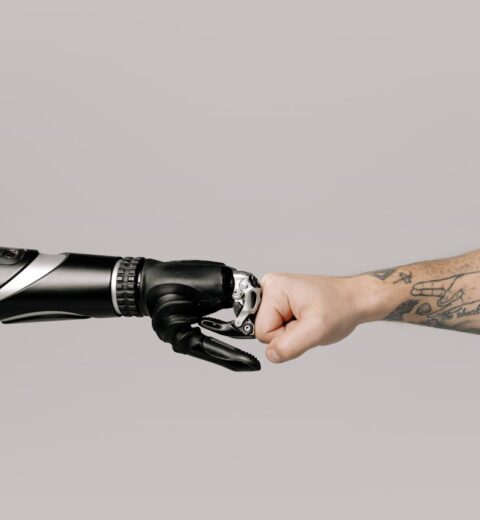As you look ahead, recruitment is changing on multiple fronts. Technology, culture, global shifts, and worker expectations are reshaping how talent is found, assessed, and retained. Here are the 10 hiring trends poised to shape 2026 and how you can prepare to stay ahead.
Key Takeaways
- AI recruiting tools will evolve into hyper-personalized candidate experiences.
- Skills-first hiring will eclipse traditional degree requirements.
- Remote-first models will blur the line between global full-time, freelance, and gig work.
- Employer branding and employee wellness will drive candidate decision-making.
- Ethics, fairness, and bias reduction will become legal as well as cultural imperatives.
1. AI-Driven, Hyper-Personalized Recruitment Tech
Artificial Intelligence in recruiting isn’t new, but by 2026 it will dominate the entire candidate journey. Expect:
- AI-driven sourcing: Tools scraping global talent pools in real-time.
- Hyper-personalized outreach: Messaging adjusted to candidate career stage, interests, and behaviors.
- Predictive analytics: Estimating which candidates will succeed and stay long-term.
- Virtual hiring assistants: Always-on tools to guide candidates through application to offer.
Why it matters: Recruiting will feel more like marketing automation. Candidates will expect personalization, not generic outreach.
Also read: [Will AI Replace Recruiters? The Real Answer]
2. Skills-First Hiring Takes the Lead
The shift away from degree-based filtering is accelerating. Employers like Google and IBM have already dropped college requirements for many roles. By 2026, skills-first hiring will be the default.
- Micro-credentials and certifications (Coursera, AWS, Google Career Certificates) will replace degrees for many tech and business roles.
- Portfolio-based hiring: Candidates showcase GitHub repos, case studies, or design portfolios.
- Assessment platforms: AI-driven skill tests for coding, problem-solving, and even communication.
Why it matters: This democratizes access to jobs, widens the candidate pool, and helps employers match skills to business needs.
3. Data-Driven Recruitment Becomes Standard
Recruiting leaders will rely less on intuition and more on data-driven hiring KPIs, including:
- Time-to-hire
- Cost-per-hire
- Quality-of-hire
- Retention and productivity metrics
Dashboards will integrate across HR tech stacks, giving leaders real-time insights into hiring bottlenecks and ROI.
Also read: [6 Ways to Automate Talent Screening Today]

4. Immersive Assessments via VR, AR & Blockchain
Hiring assessments will move beyond Zoom calls.
By 2026:
- VR simulations will replicate job tasks (e.g., customer service calls, safety drills).
- AR onboarding will allow new hires to “step into” company environments virtually.
- Blockchain credentials will let recruiters verify skills and work histories instantly, cutting fraud and background check delays.
Why it matters: Assessment will feel more like “try before you buy” for both sides.
5. Remote, Hybrid, and Gig-First Ecosystems
By 2026, recruitment will be global by default. Employers will build hybrid teams mixing:
- Full-time employees in-office
- Remote-first global hires
- Freelancers and contractors engaged via platforms
Why it matters: Organizations must master compliance, payroll, and collaboration in distributed environments. Flexibility will become a non-negotiable for talent acquisition.
Also read: [How to Hire Globally Without Legal Headaches]
6. Employer Branding as a Decisive Factor
In 2026, candidates will research your employer brand before you even see their resume. Companies with transparent, authentic reputations will win.
- Social media storytelling
- Employee-generated content (e.g., behind-the-scenes TikToks, blogs)
- Authentic Glassdoor/Indeed reviews
Why it matters: Pay and perks alone won’t win candidates. Employer reputation and values alignment will.
Also read: [Why Traditional Recruitment is Broken—And What to Do Instead]
7. Upskilling, Reskilling & Internal Mobility
Talent shortages will intensify. Instead of external hiring, companies will train and promote internally.
- Internal job marketplaces for career progression
- Learning & development tied directly to business needs
- AI career coaches guiding employees to future roles
Why it matters: It’s cheaper to reskill an existing employee than hire new ones in competitive markets.
8. DEI, Ethics & Fairness by Design
With AI dominating recruiting, bias and fairness will be under the microscope. By 2026:
- Legal frameworks will require bias audits of hiring algorithms.
- Anonymous screening will become standard.
- Transparency into why candidates were rejected will be expected.
Why it matters: Ethical hiring isn’t just a moral good, it’s a legal obligation and employer brand necessity.
9. Employee Well-Being as a Talent Magnet
Employee well-being will move from benefit to baseline expectation. Candidates will ask:
- Do you offer mental health support?
- Are your working hours flexible?
- How do you support wellness and balance?
Why it matters: Burnout and disengagement are retention killers. Wellness initiatives will define competitive employers.
10. Integrated, Automated HR Tech Stacks
Disconnected HR systems will be obsolete. By 2026:
- Applicant tracking, payroll, onboarding, and performance management will exist in one ecosystem.
- Automation will cut administrative tasks (interview scheduling, background checks, document processing).
- Leaders will have end-to-end analytics visibility.
Why it matters: Efficiency, consistency, and scalability across the entire talent lifecycle.
Conclusion: The 2026 Hiring Blueprint
Recruitment in 2026 will be faster, fairer, and more personalized than ever before. The winners will be those who:
- Use AI and automation responsibly.
- Embrace skills-first over degree-first.
- Prioritize candidate experience and wellness.
- Build ethical, transparent, and data-driven systems.
FAQ
Which trend will define 2026 the most?
AI-driven recruiting and skills-first hiring will likely be the most impactful.
Will degrees be irrelevant by 2026?
Not irrelevant, but no longer a default filter for most knowledge-economy jobs.
How can recruiters prepare now?
Invest in AI recruiting tools, refine employer branding, and build skills-based assessment pipelines.




